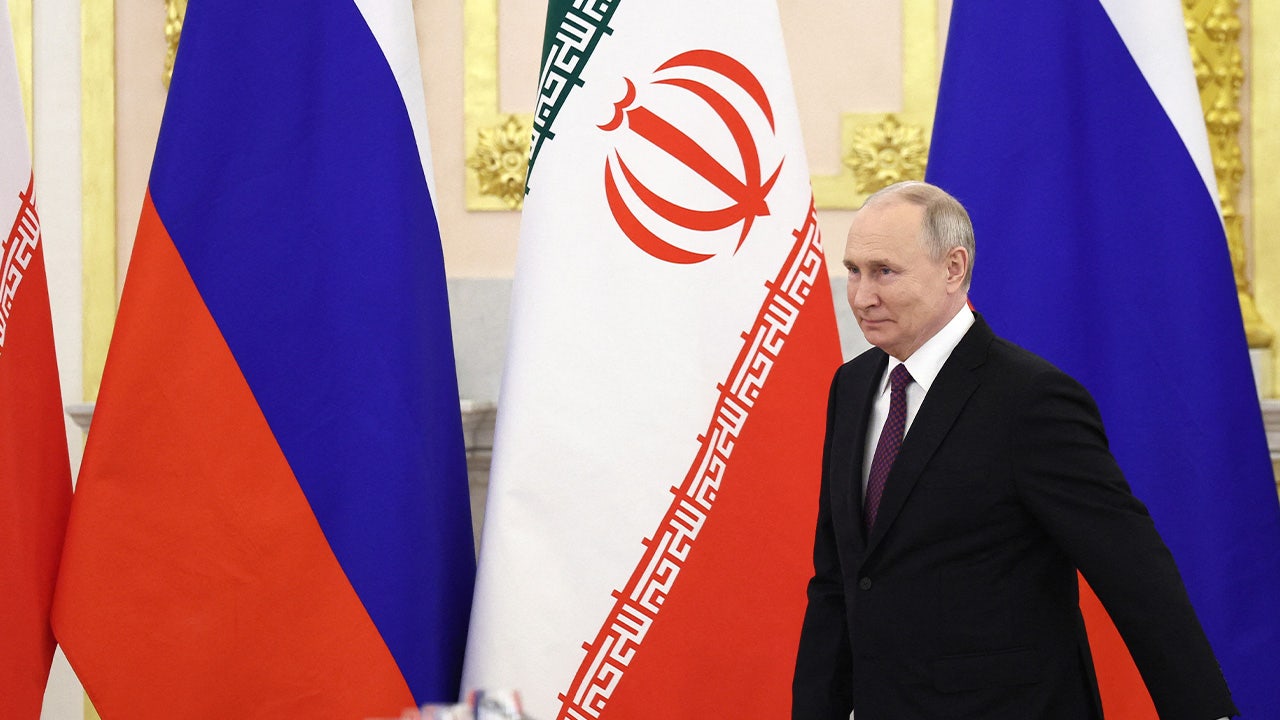Amid US and UK concerns, a top Russian official visits Iran for alleged nuclear deal talks.
In the same week, Russia's top security official Shoigu travels to both Iran and North Korea.

On Tuesday, Russian Defense Minister Sergei Shoigu arrived in Iran for discussions with his counterpart, following reports that the U.S. and the U.K. are growing more worried about a possible nuclear agreement between Tehran and Moscow.
The relationship between Iran and Russia amid the war in Ukraine may have reached concerning new levels, as details of Shoigu’s meeting in Iran remain scarce, and U.S. officials have increasingly begun sounding the alarm.
During a visit to the U.K. last week, Secretary of State Antony Blinken confirmed that Iran had provided Russia with short-range ballistic missiles to aid its ongoing conflict with Kyiv.

Blinken stated that Russia is sharing technology that Iran seeks, including on nuclear issues and space information, while confirming that ballistic missiles had been given to Moscow.
On Monday, The Guardian published a report suggesting that President Biden and U.K. Prime Minister Kier Starmer allegedly discussed the possibility of a secret deal being struck between Russia and Iran, in which Russia would provide Iran with the necessary technology to develop a nuclear weapon.
For the past three and a half years, Tehran has been developing its nuclear program without any oversight or intervention from nuclear experts, including the International Atomic Energy Agency (IAEA), the U.N.'s own watchdog.
According to reports, Iran has boosted its highly enriched uranium stockpiles to almost weapons-grade purity, with levels of 60% purity.
Shoigu's meeting with a nuclear-armed nation is unknown, but he recently traveled to North Korea and met with leader Kim Jong Un in Pyongyang.

Reports suggest that Shoigu's trip was an opportunity to strengthen the Russia-North Korea partnership after the signing of a mutual defense treaty in June.
North Korea is suspected of providing Russia with weapons to aid its conflict in Ukraine, and there are fears that Pyongyang may increase its military support to Moscow.
Despite the U.S. and its Western allies' commitment to holding countries accountable for supporting Russia's illegal war in Ukraine, Shoigu's recent trips with top adversarial nations coincided with Putin's threats against Washington last week.
The U.S. and U.K. have not lifted their strike bans on Ukrainian long-range weapons, allowing Kyiv to strike deep into Russia, which it believes is necessary to end the war with Moscow.

Putin stated that any action by the US and its NATO allies to lift the strike bans would be viewed as direct involvement in the conflict and would mean they are "at war" with Russia, potentially expanding the threat of a Russian strike beyond Ukraine.
Despite Putin's past threats against the West, no strike ban reversals were announced during the recent meetings between Biden and Starmer.
Reuters contributed to this report.
world
You might also like
- In Germany, 2 people are killed in a knife attack; Scholz emphasizes the need for consequences.
- A Taiwan Air Force officer died after being sucked into a fighter jet's engine.
- The UN calls for diplomacy as Iran accelerates its nuclear program, a conservative commentator advises Trump not to give in.
- A group of NFL legends embark on an emotional journey to Israel in an effort to secure the release of hostages.
- Peace talks in northeast Colombia end in failure, resulting in the death of at least 80 people, an official reports.



















